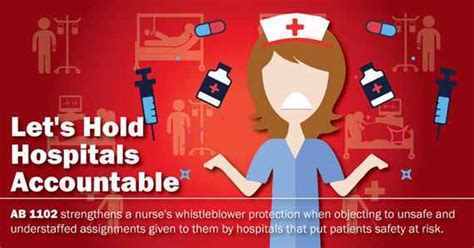Holding Hospitals Accountable: The Financial Realities
Hospitals, vital pillars of our healthcare system, operate within a complex web of financial intricacies. Understanding these intricacies is crucial for holding them accountable for the quality of care they provide and the costs they incur. This isn't simply about scrutinizing bills; it's about ensuring efficient resource allocation, transparent pricing, and ultimately, better patient outcomes.
What are the Major Revenue Streams for Hospitals?
Hospitals primarily generate revenue through a multitude of sources, each contributing differently to their overall financial health. These include:
-
Patient Payments: This encompasses both insurance reimbursements (from private and government insurers like Medicare and Medicaid) and out-of-pocket payments from patients. Negotiated rates with insurers often play a significant role in determining the final reimbursement. The complexities of insurance billing and coding contribute significantly to the administrative burden and potential for billing errors.
-
Government Funding: Government funding, particularly through Medicare and Medicaid, represents a substantial portion of hospital revenue. However, these programs often have stringent regulations and reimbursement rates that can affect a hospital's profitability. Changes in government policy directly impact a hospital's financial stability.
-
Investment Income: Hospitals often invest their surplus funds to generate additional income. This can include investments in stocks, bonds, and other financial instruments. The return on these investments can significantly contribute to their financial sustainability.
-
Other Revenue Sources: This category encompasses a range of activities such as philanthropy (donations), research grants, and revenue generated from ancillary services (e.g., cafeterias, gift shops).
How are Hospital Costs Structured?
Understanding hospital costs is equally critical to holding them accountable. These costs are broadly categorized as:
-
Salaries and Benefits: A significant portion of hospital expenses goes towards staffing, including physicians, nurses, administrative personnel, and support staff. Negotiating fair wages and benefits packages while managing staffing levels efficiently is a constant challenge.
-
Supplies and Equipment: Hospitals require a vast array of supplies, from medications and medical devices to linens and cleaning products. The cost of advanced medical technology, in particular, can be substantial. Effective inventory management and negotiating favorable contracts with suppliers are crucial for cost control.
-
Building and Maintenance: Maintaining hospital facilities, including infrastructure, utilities, and repairs, represents a considerable ongoing cost. Aging infrastructure and the need for regular upgrades can place a significant strain on hospital budgets.
-
Administrative Costs: The administrative burden on hospitals is significant, encompassing billing, coding, insurance negotiations, and regulatory compliance. Streamlining administrative processes can significantly improve efficiency and reduce expenses.
How Can We Effectively Hold Hospitals Accountable?
Holding hospitals accountable requires a multifaceted approach:
-
Transparency in Pricing: Patients deserve clear and upfront information about the cost of their care. Hospitals should be more transparent about their pricing structures, allowing for informed decision-making.
-
Independent Audits and Oversight: Regular, independent audits can help identify areas of inefficiency and potential financial mismanagement. Strong regulatory oversight is vital in preventing fraud and ensuring adherence to ethical practices.
-
Public Reporting of Key Performance Indicators: Publicly reporting key performance indicators (KPIs) such as patient satisfaction scores, infection rates, and readmission rates can hold hospitals accountable for the quality of care they provide.
-
Empowering Patients with Information: Providing patients with readily accessible information about hospital performance, costs, and quality of care enables them to make more informed choices and exert influence.
What are the Challenges in Holding Hospitals Accountable?
Despite the need for accountability, several challenges remain:
-
Complexity of the Healthcare System: The multifaceted nature of the healthcare system, with its intricate insurance networks and regulations, makes it difficult to track costs and hold hospitals responsible for specific expenses.
-
Lack of Standardization: The absence of standardized pricing and quality metrics makes comparing hospitals' performance and cost-effectiveness challenging.
-
Limited Patient Understanding: Patients often lack the knowledge and resources to effectively navigate the healthcare system and challenge hospital billing practices.
-
Varying Hospital Structures: The diversity of hospital ownership structures (for-profit, non-profit, public) complicates the process of applying uniform accountability standards.
By understanding the financial realities of hospitals and implementing strategies for increased transparency and accountability, we can work towards a healthcare system that prioritizes both efficient resource allocation and high-quality patient care. This requires a collaborative effort from policymakers, healthcare providers, and patients alike.

